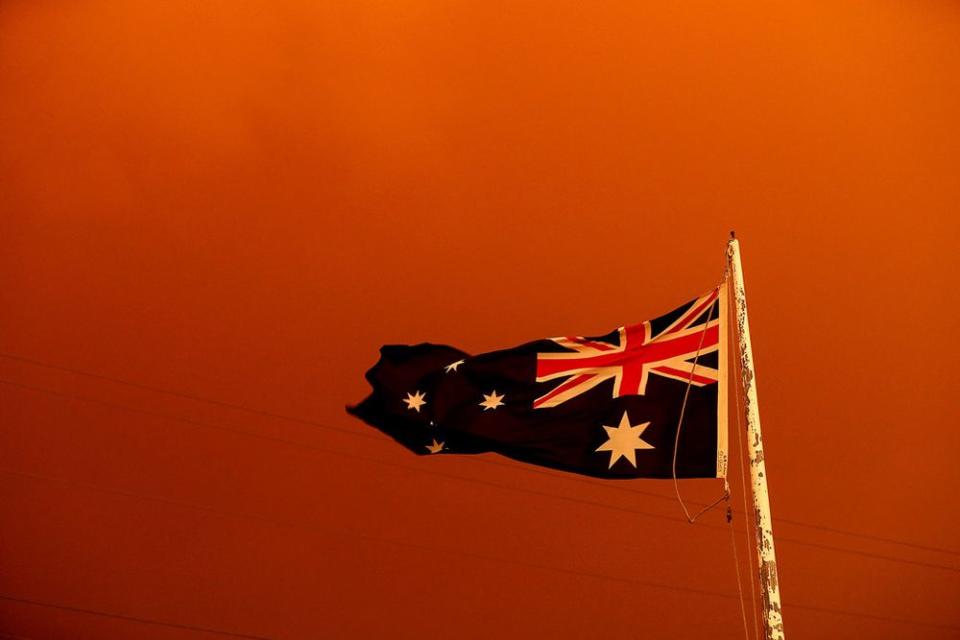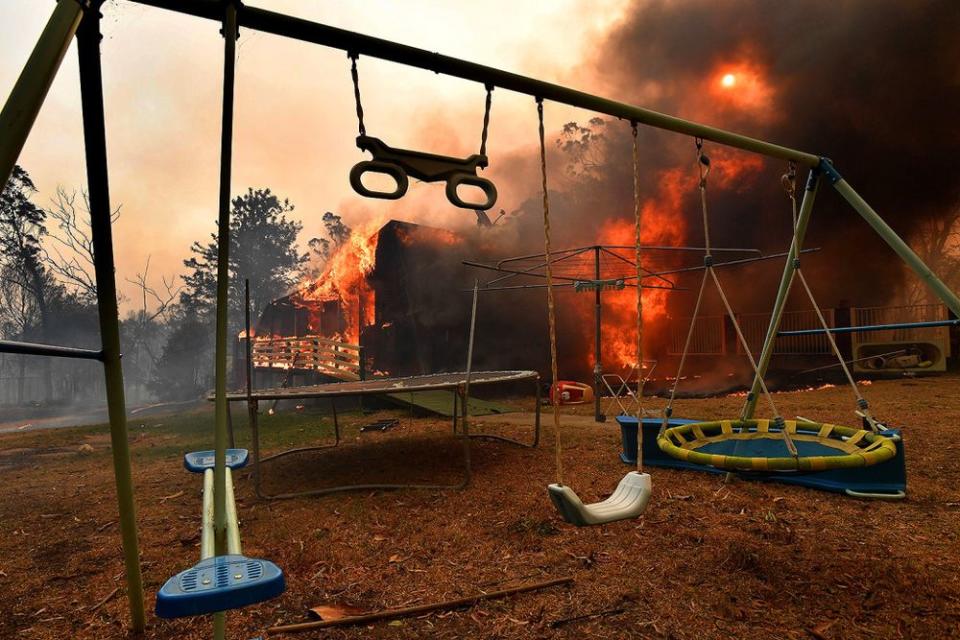Climate Change 'Set the Stage' for Australian Fires, Experts Say as Leaders Deny 'Widening Crisis'
Raging bushfires in Australia have caused “ecological Armageddon” — yet government leaders continue to dismiss climate change as playing any role in the unprecedented blazes ravaging the country.
Top scientists are urging the world’s most industrialized nations to take immediate action to slash carbon emissions heating up the planet, resulting in the searing heatwaves, massive drought, and dry vegetation experts say are fueling the fires.
Even as Australia, the second-largest carbon emitter after the United States, continues to burn, releasing more heat-causing gases into the atmosphere, it says it’s doing as much as it’s going to do to lower carbon emissions, Reuters reported.
“What we won’t do is engage in reckless and job-destroying and economy-crushing targets which are being sought,” Australian Prime Minister Scott Morrison said in December amidst cries for the government to take measures to reduce carbon emissions, the BBC News reported.
RELATED: Australian Firefighters Who Died ‘Bravely Defending’ Communities Were New Dads & Close Friends

Slammed at the most recent United Nations climate summit in Madrid and by many of its own citizens for not doing enough to lower emissions, Australia’s leaders have been accused of putting profits and loyalty to fossil fuel companies, including the coal mining industry, ahead of taking steps to preserve the future.
Dismissing any discussion on climate change, Emissions Reduction Minister Angus Taylor told Reuters Tuesday, “When it comes to reducing global emissions, Australia must and is doing its bit, but bushfires are a time when communities must unite, not divide.”
While climate change hasn’t directly caused the Australian bushfires, it’s a huge factor in making the blazes the worst the country has ever seen — and will continue to see, say experts.
Since September, destructive wildfires have swept through huge swaths of Australia, mainly in the east, displacing thousands, razing entire towns and killing at least 24 people and a whopping 1 billion animals.
“Any disaster that’s tied to the natural world has multiple causes,” Bob Deans of the Natural Resources Defense Council tells PEOPLE.

“Climate change didn’t cause these fires, but it sets the stage for making them more devastating,” he says. “They start more easily. They spread faster. They’re harder to fight and they’re more damaging.”
Peter Gleick, a climate scientist at the Pacific Institute in California, told Time, “There are now disingenuous efforts to downplay the clear role of climate change in worsening the intensity and severity of the Australian fires…as a way to distract from the growing threat of climate change. These efforts should be called out for what they are: gross climate denial.”
RELATED: Girl Wears Her Australian Firefighter Dad’s Helmet and Refuses to Leave His Side at His Funeral

Bushfires aren’t new to Australia, but “because of hotter, drier weather,” Dean says, “we are seeing the fire season starting sooner, lasting longer and becoming more devastating.”
“Much of Australia has experienced record heat,” he adds. “December 17 was the hottest day on record nationally in Australia.”
The national average was 105 degrees Fahrenheit, which “is off the charts,” he says.
RELATED VIDEO: How You Can Help the Irwin Family’s Australia Wildfire Relief Efforts
Like the fires that ravaged California in 2018, the Australian fires are not a one-time occurrence. They will keep continuing as long as climate change goes unchecked, say experts.
“The situation is dire and it points to the global crisis we’re facing,” says Deans. “It’s a widening crisis.”
And it’s hit close to home here in the United States.
“What we’ve seen in the western United States is longer summers, drier conditions, and extended drought,” says Dean. “When you look at this record heat, prolonged drought and these devastating wildfires, Australia is telling us every way it can that we have to cut the dangerous carbon pollution that’s driving this global crisis — while we still have time.”
“The science is telling us we’ve got to cut this carbon pollution by about 45 percent by 2030 if we’re to have a chance to stave off the worst impacts of climate change,” Dean adds.”
For more on the Australian fires, pick up this week’s issue of PEOPLE, on newsstands Friday.

